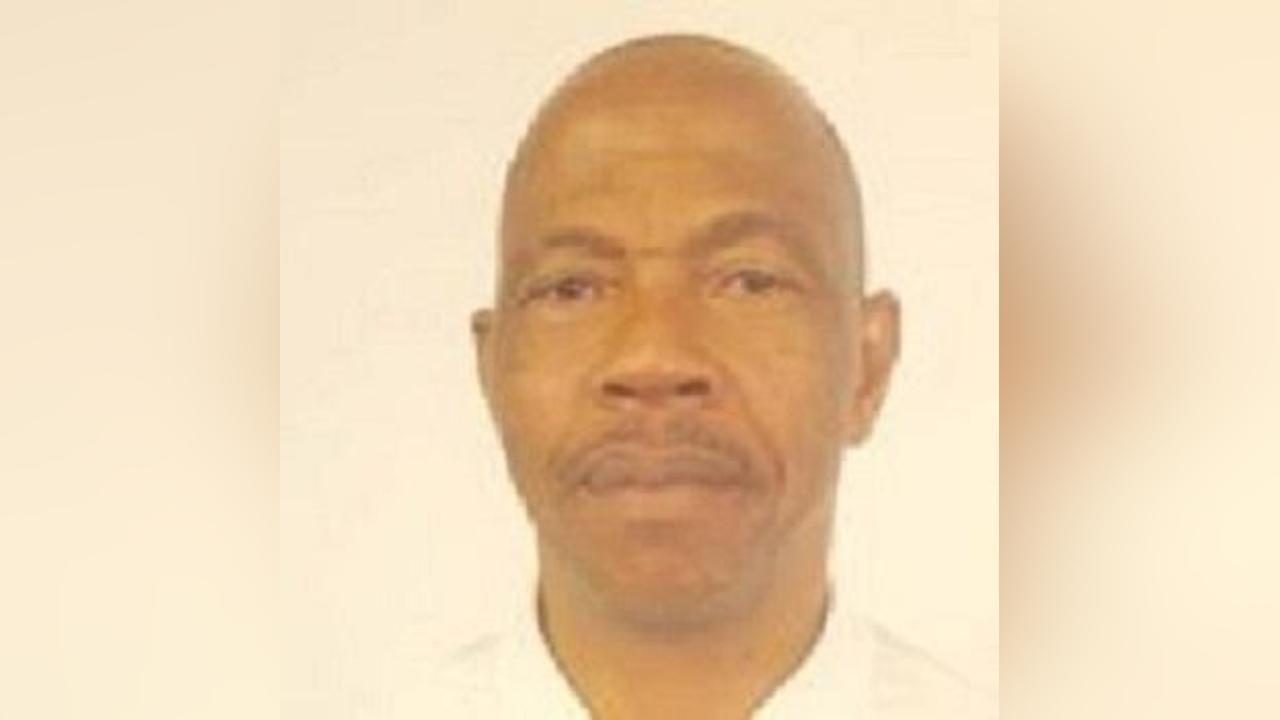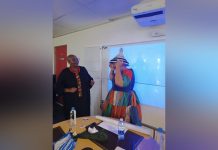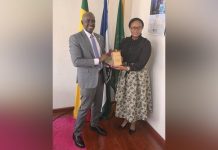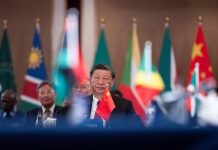Africa-Press – Lesotho. GROWING up in Qeme Ha-Motheo village, politics was the last thing on Sello Hakane’s mind. Brought up by his single mother who was a tailor, Hakane knows what it means to go to bed on an empty stomach.
“I was only told that my father had left for the mines ages ago,” Hakane said.
He said his father returned home from the mines when Hakane was already a grown up boy and died barely two years after his return. But Hakane refused to have such circumstances define his future.
“I worked hard to navigate my way out of poverty,” said Hakane, speaking from his office building in Thetsane.
He moved to Maseru Day High School to do his Cambridge Overseas School Certificate (COSC) after completing his Junior Certificate (JC) studies at ’Matikoe Secondary School.
“That was the last time I was in school due to issues of poverty.
My mother had to put bread on the table for my other siblings,” he said, recalling how he had to move from house to house selling jerseys that his mother had made.
He said he also sold clothes in the streets of Maseru. “I also learnt from my mother how to make jerseys. I know what it takes to be a street vendor,” he chuckled, praising his mother for being a positive influence.
He said he would save profits from the vending business to buy more stock and grow the enterprise. “I jumped deep into business in 1990. I had a vision to make it in the clothing business even before I left secondary school.
I was always eager to know where people at school got their clothes,” he said. Hakane started a small company called Seshoeshoe Dressmaking in 2000 which he expanded to Seshoeshoe Productions.
“I wanted to produce more and grow bigger”. As his business name suggests, Hakane was heavily into Seshoeshoe dresses for women.
Still, he felt as though he was not achieving his dream. He wanted to graduate to a factory system. Then in 2007, he switched his business to producing freezer suites.
He said he approached the Lesotho National Development Corporation (LNDC) to rent a building in town. “Luckily, the LNDC helped me achieve my dream. It took him almost two years to translate my dream into reality.
We were the first to produce freezer suites in the country,” he said. He noted that many people in the country are emulating the freezer suites business, something he is proud of as it is a sign of successful transfer of skills to other people.
“When my business grew, I began to produce different sizes for different clients until I stopped taking orders from individuals to focus on producing for companies,” he said.
His company also produces work wear items such as heavy shoes, overalls and golf shirts and is now aiming to penetrate the export market. “I want to dip my hands into the AGOA market,”Hakane said.
The Africa Growth Opportunity Act (AGOA) is a United States law giving eligible African countries access to the vast American market duty-free. Lesotho heavily relies on AGOA for its exports of clothing ware.
With a complement of 50 staff members that stretches to 100 on busy days, Hakane said his company also produces uniforms for big mining companies in Lesotho, in addition to securing “a sustainable market” in some fuel companies.
“They get almost all their uniforms from us and we also have an embroidery unit,” Hakane said, adding that some suppliers buy items from his company to supply other companies.
He says they also supply Personal Protective Equipment (PPE) to companies in Lesotho. He says they saw how foreign investors, particularly the Taiwanese, worked together in running textile factories.
Even though Hakane was running a successful business venture, he was not happy with how his own country was being governed. Disillusioned by what he saw on the political front, Hakane began entertaining thoughts about joining politics.
With his experience in business, Hakane said he felt he could play a role in bringing positive changes in the lives of Basotho. “I wanted to be in government to serve my country as a decision-maker.
But I did not know how to go about it,” he said. The break came when some friends encouraged him to join a new party established by the now Prime Minister Sam Matekane.
“Honestly, I did not envisage that Matekane would one day form a political party,” he said
“I joined his party and wasted no time as I rushed to Qeme constituency to canvas for votes.
Our strategy as the Revolution for Prosperity (RFP) was to walk from house-to-house to attract the minds of voters. “We came at the right time when people wanted change,” he said.
Hakane was elected a Member of Parliament for Qeme constituency in general elections held in October last year. Hakane said he had to work hard to win Qeme constituency where he faced Nkaku Kabi, the leader of the opposition All Basotho Convention (ABC) party.
“You work hard if you know that you face a giant,” Hakane said.
He said as the leader of the ABC, Kabi’s focus was on other constituencies spread throughout the country which gave him a chance to consolidate in Qeme.
Hakane said what gave him a chance was that Matekane was a very sellable candidate and that people were hungry for change after years of the same faces in politics.
He said he wants to influence changes in the farming sector adding that the current approach is totally wrong. Hakane said the government is going to change the age-old practice of people going to their fields to tend their crops.
He said the government plans to mechanize agriculture and do away with the ox-drawn ploughs to till the land. “This is not a lie. We are going to do it,” Hakane said. He said while it is good to subsidize farmers that on its own is not good enough. Much more needs to be done to revamp the agriculture sector.
For More News And Analysis About Lesotho Follow Africa-Press






